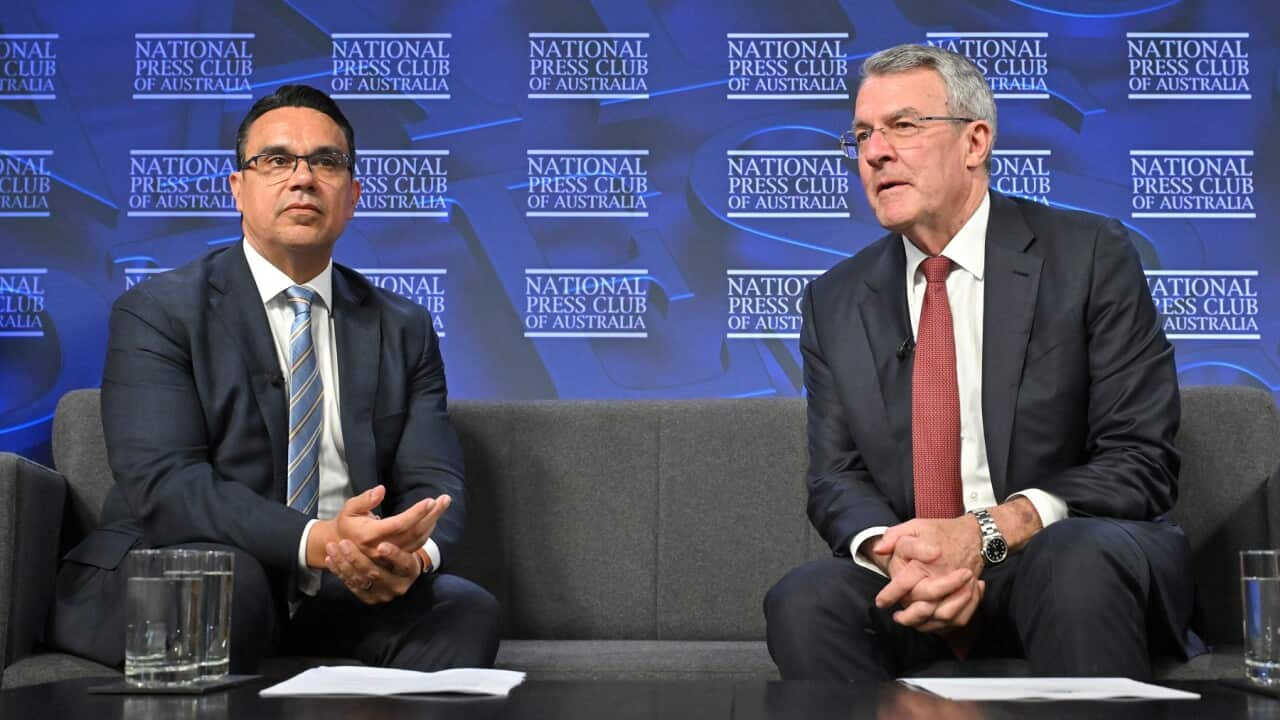TRANSCRIPT
"It's a disturbing but inescapable fact that Australia is at serious risk of exploitation by criminals seeking to launder illicit funds."
That's Australia's first law officer, Attorney-General Mark Dreyfus, with a scathing assessment of Australia's ability to tackle money laundering and terror financing.
"Australia is falling short of meeting the standards required to combat criminal abuse of our financial system, and is at increased risk of becoming a haven for money laundering. It's now almost a decade since Australia was found to have significant deficiencies in our ability to combat money laundering and counter-terrorism financing."
So, what is money laundering?
Jamie Ferrill is the Head of Financial Crime Studies at Charles Sturt University.
She says it's a way to make illicit money legitimate.
"Money laundering is essentially the process of taking illicit funds that have been generated through crimes, and then putting it through, sometimes a complex, sometimes relatively easy process to kind of hide where that money came from."
When you have profits from crime, it's hard to simply spend it.
Whilst buying your groceries with cash won't raise any eyebrows, when you have millions of dollars you can't go out and use it freely.
Dr Ferrill says criminals have systems to try to make dirty money look legitimate.
"It could be through any number of mechanisms, through setting up a number of different bank accounts, it could go through trust accounts, shell companies could be used to purchase real estate, luxury goods, anything that you can start using that money to, again, just obfuscate where it came from."
Billions of dollars in criminal money flow through Australia each year.
Some businesses, like banks and casinos, are required to report suspicious activity.
But for some businesses, there's currently no obligation.
Mr Dreyfus says that's being exploited by criminals.
"Just last year, the AFP-led criminal assets confiscation Task Force restrained criminal assets worth over $352 million - a staggering $214 million more than the previous year. Real estate accounted for 65% of those assets."
The government wants to impose regulations on what they call tranche two businesses, like real estate agents, lawyers, accountants, and gem dealers, to make it harder for money to be laundered in Australia.
Dr Ferrill says it will obligate them to answer questions about where the money is coming from.
"They'll be required to do things like reporting suspicious transactions and completing customer due diligence procedures. So, asking those questions and ascertaining where their money actually came from, and if it makes sense. So, it'll start to spur some of those questions around this. This doesn't seem right, I need to ask some more questions around it."
And it isn't just the government in Australia that wants this.
The Financial Action Task Force, an intergovernmental organisation that exists to combat money laundering, has found Australia isn't meeting global standards.
Attorney-General Mark Dreyfus says that puts Australia at risk.
"The former government allowed Australia to become vulnerable - a playground for organised crime. As a result of its failure to act, the former government has now put Australia at risk of being grey-listed by the Financial Action Task Force for failing to meet minimum global standards."
Grey-listing is when the Financial Action Task Force puts a country under increased monitoring due to it not meeting money laundering obligations.
Dr Ferrill says that has consequences.
"It increases your obligations over the next couple of years. Because the taskforce will start the enhanced monitoring program, we'll call it so be required to actually meet some milestones and check in on progress. But what it also does is it sends a message to the international community, that we're not taking this seriously, and it hurts foreign investments in that sense. And then it also really highlights that we have a number of vulnerabilities that is a wide-open door to criminals who want to exploit that even further."
The businesses targeted in the proposal are generally smaller businesses than banks or casinos, with concerns from industry about the burden it would create.
Chief Executive of AUSTRAC Brendan Thomas says they want to work with business to get it right.
"One of the things that does characterise the tranche two entities, is that so many of them are small businesses. I'm incredibly conscious of that as the potential future regulator. And we're not interested in regulation for the sake of regulation. The whole purpose of this is to try and close the door to crime and strengthen all of our institutions against organised crime."
Deputy President of the Real Estate Institute of Australia Hannah Gill says she's still concerned about the burden on business.
"We appreciate obviously the clear statements commitment to minimising the burden on businesses. The last thing we want is, is, you know, homes that are already in scarce supply to land in the hands of illegitimate actors. So, we're supportive of the idea and we're supportive of creating a framework to provide protection to that. Our concern is really the additional compliance proposed might not actually have that effect and preventing properties entering the black market, and how that actually impacts an agency day to day and also the customer at the end of that."













